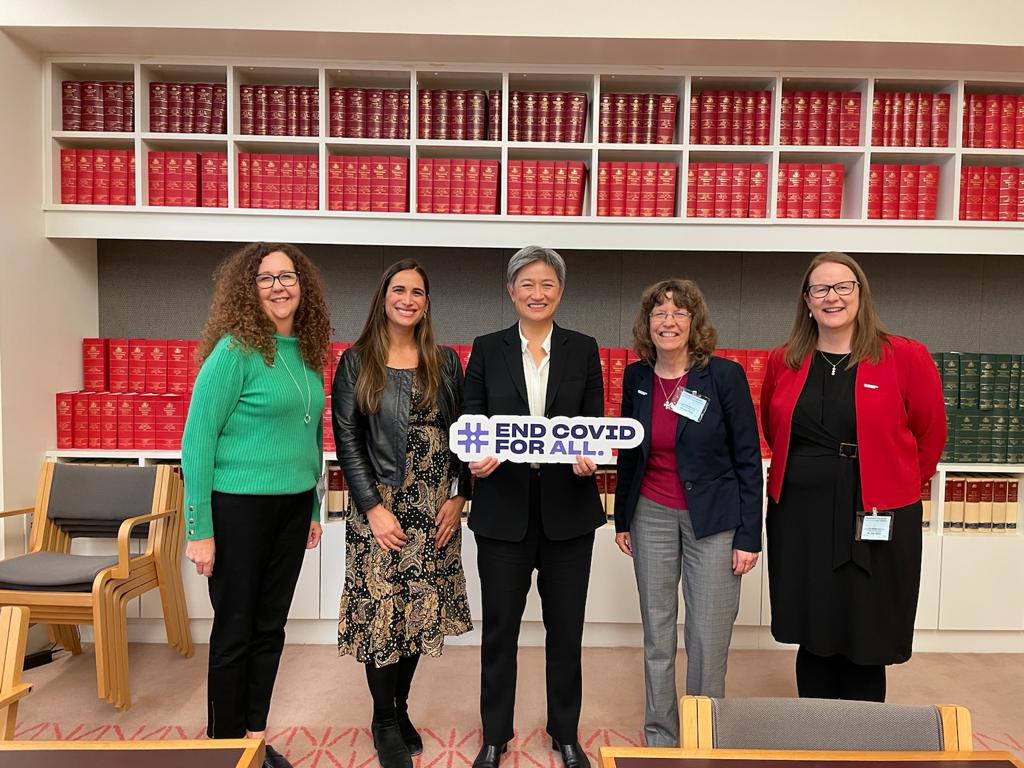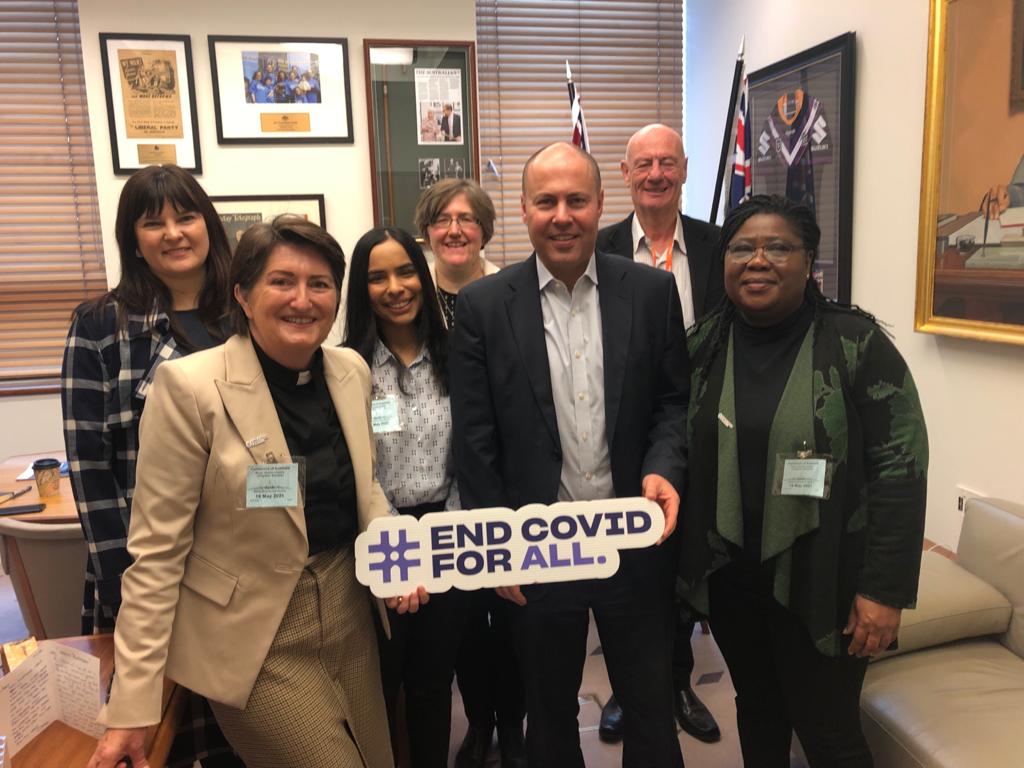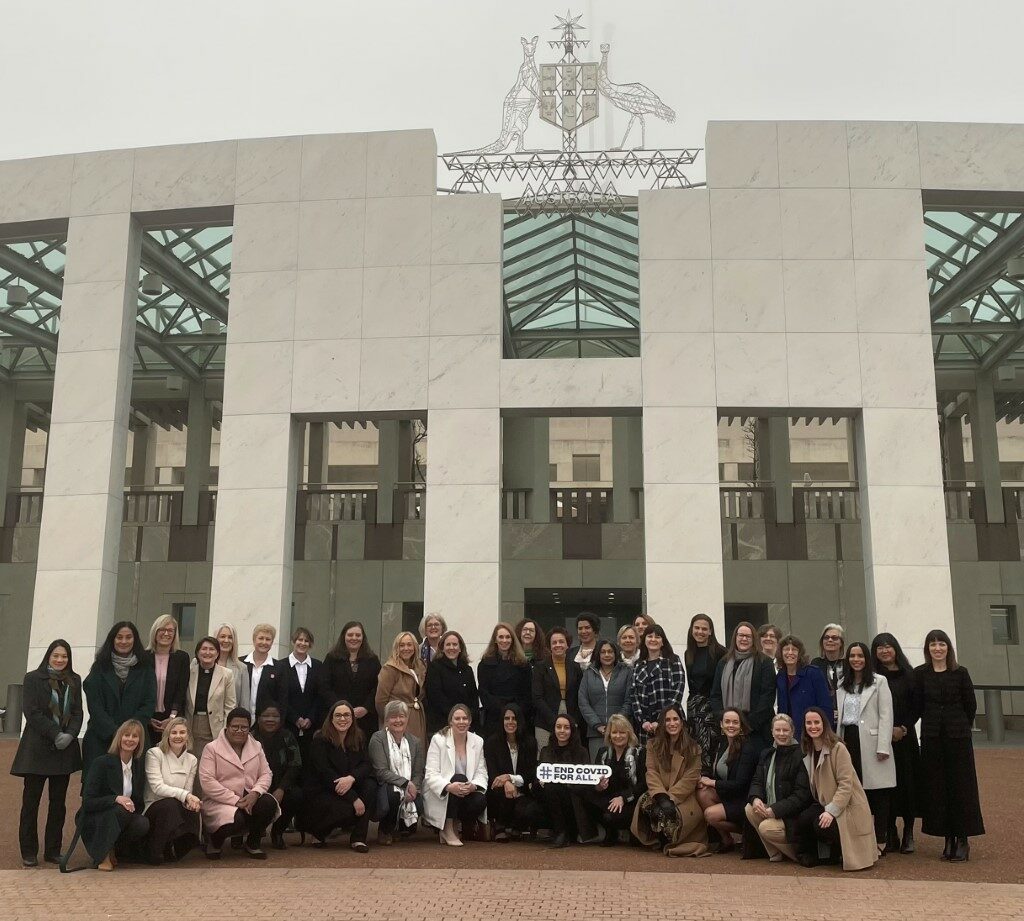Forty women leaders from Australia’s mainline church denominations and Christian organisations gathered in Canberra to address what they say is a ‘two-track pandemic’, with richer countries having access to vaccines and poorer ones being left behind.
Uniting Church president Dr Deirdre Palmer and UnitingWorld National Director Dr Sureka Gorringe represented the Uniting Church at the event.
Dr Gorringe told Insights that delegates, “had little in common except a love for Jesus and a commitment to justice, but that the power of it. When we set aside our differences to focus on a cause beyond ourselves, we can become unignorable.”

Rev. Dr Melinda Cousins is Director of Ministries for the Baptist Churches of South Australia. She said that a vaccine “access gap” was opening between richer and poorer countries, which she said was “morally indefensible [and] an inequity that is perpetuating the pandemic.”
“With worldwide deaths reaching over 10,000 per day, this pandemic is far from over, with the worst now hitting low and middle-income countries in South America and Asia, and fears rising at the possibility of a more contagious third-wave in the African continent,” Rev. Dr Cousins said.
“As leaders, our collective voice can make a difference. And while our world is facing tremendous challenge, we are here today to display hopeful action – encouraging our politicians that Australia can continue to be a part of that solution at this devastating time.”
With every mainline denomination represented, leaders met with Senior Ministers and Members of Parliament from both major political parties, drawing their attention to the issue of global vaccine equity and the most urgent knock-on impacts of the pandemic on the world’s lower income nations: rising extreme poverty, famine, and the further marginalisation of vulnerable groups.
“Over one billion people were lifted out of extreme poverty during the last 20-years, however COVID-19 has thrown the brakes on this, and is now jamming it into reverse, with an additional 150 million people expected to be pushed into poverty by the end of 2021.”
“An additional 10,000 children each month are dying as a result of COVID-19 related hunger.”

The delegation impressed upon the leaders they meet that the moral, health, and economic case all point towards Australia and other wealthy nations continuing to increase their efforts to help end COVID for all.
“We know this pandemic doesn’t end for anyone, until it ends for everyone.”
“We’re here to say to Australia’s politicians that whilst Australia has made a good start in responding to the needs of our neighbours, as the virus evolves, so too must our response.”
Despite the provision of significant temporary measures of over $1.3 billion in additional aid financing to help our neighbours respond and recover from the pandemic, Australia continues to tumble down the ‘global aid generosity rankings’ (which looks at a nation’s aid budget relative to its Gross National Income) – falling from 14th in 2015, to 21st in 2020 out of the 29 richest nations in the world.
Australia is leading the world in its comeback from the COVID-19 global pandemic and recession. According to the Australian Bureau of Statistics, the Australian economy has now recovered to be above pre-pandemic levels. At a time when the world is facing an unprecedented crisis, Australia’s temporary boost in its aid budget does not equate to a sustained commitment to increased generosity.












